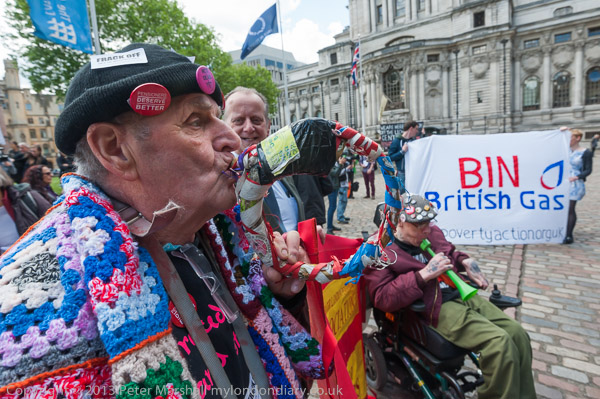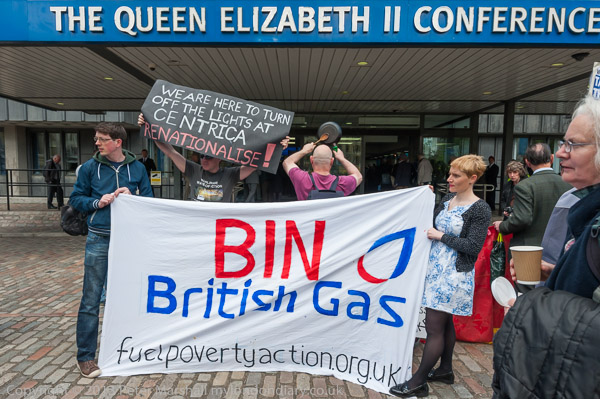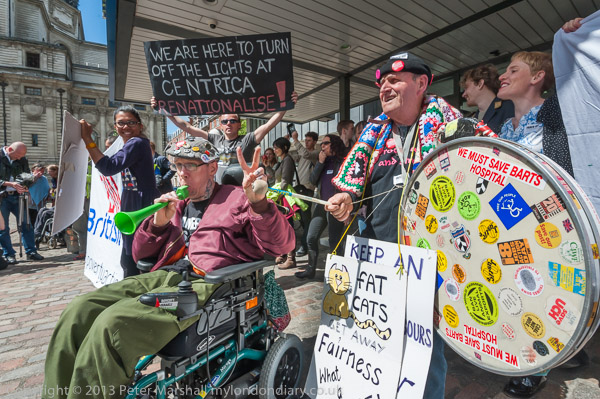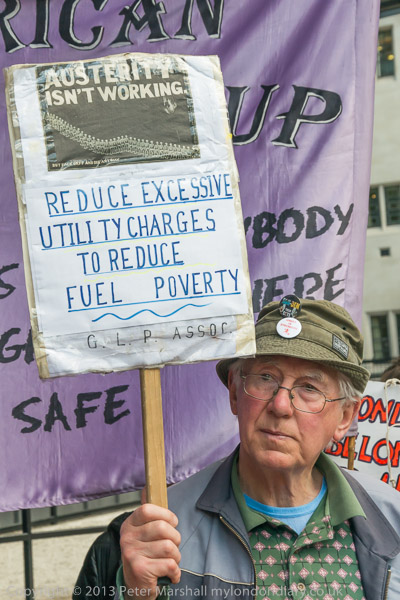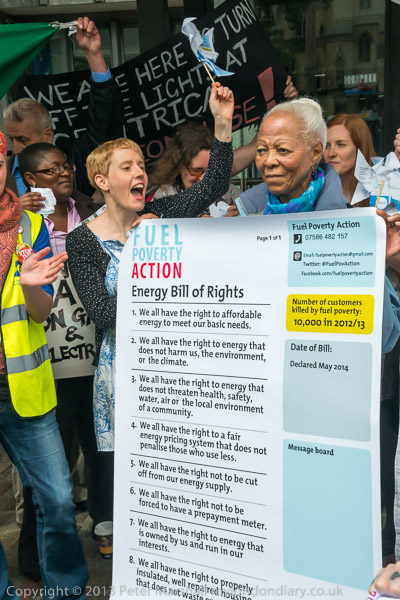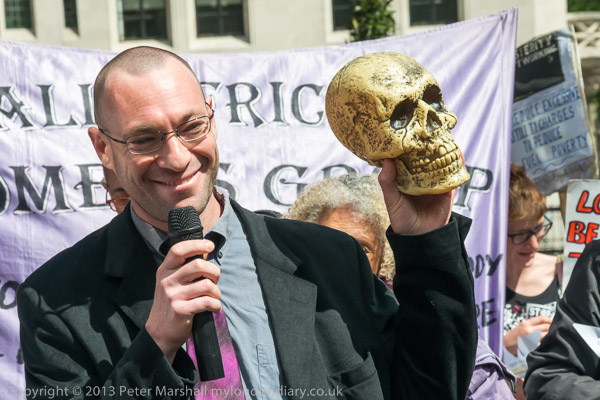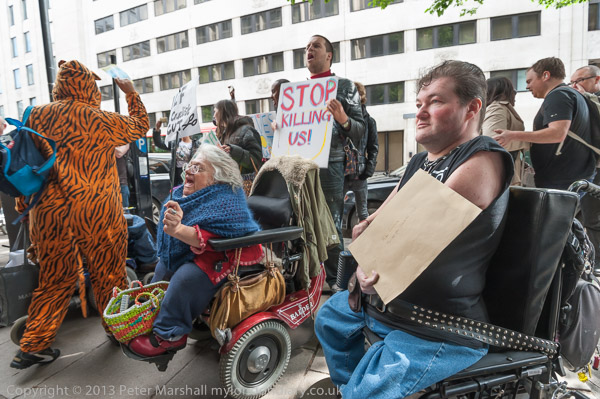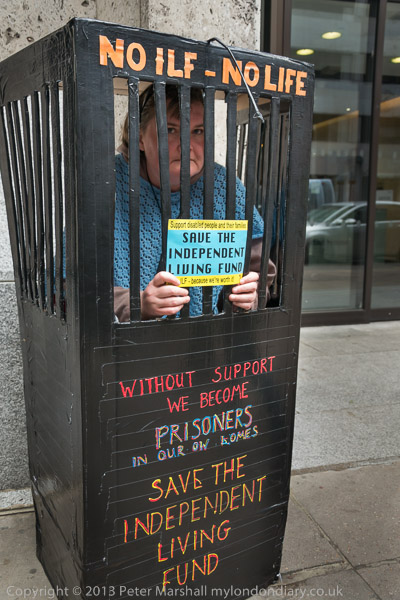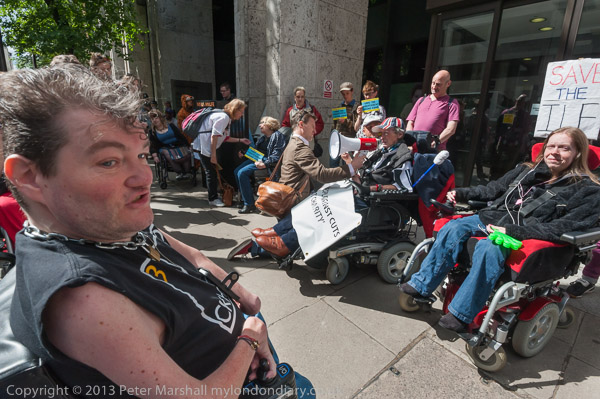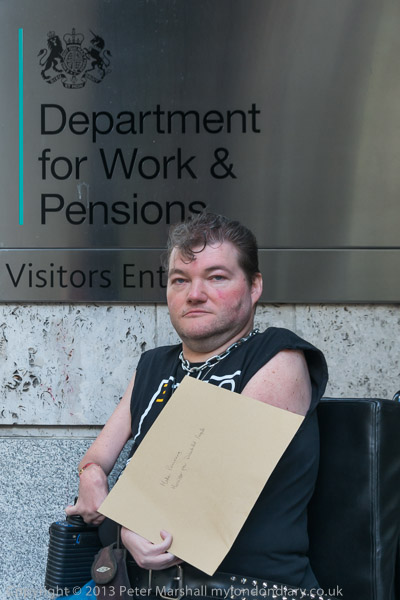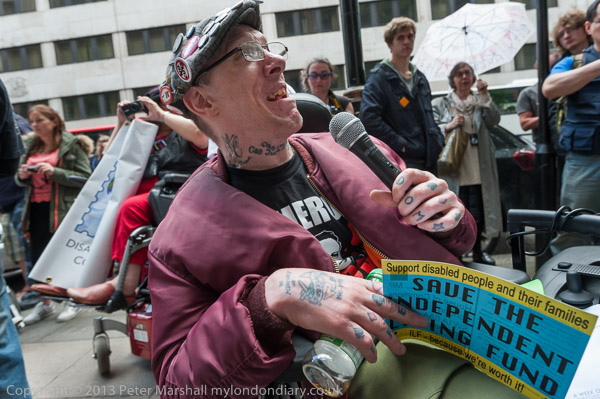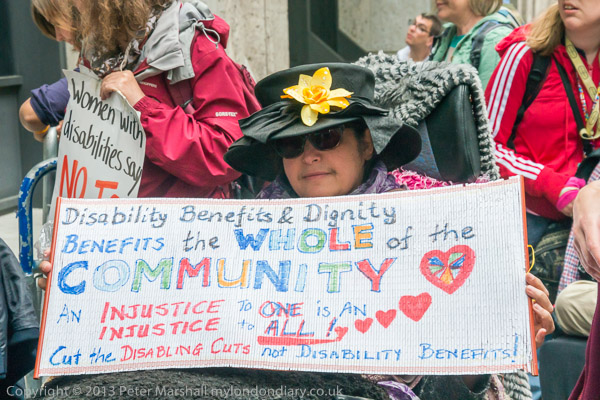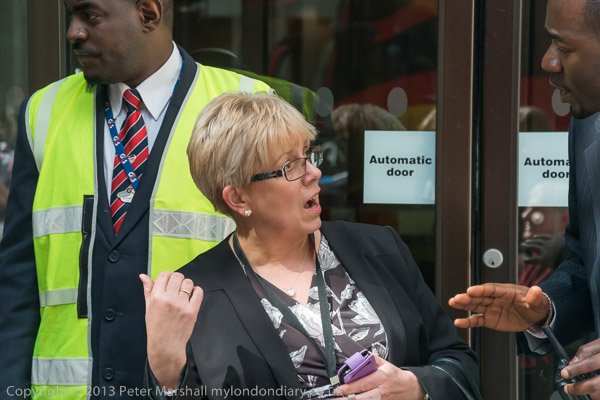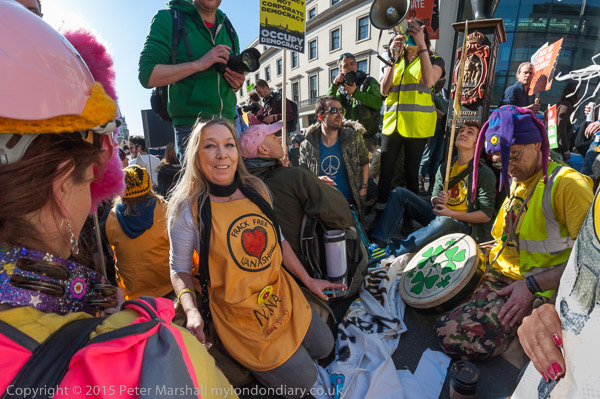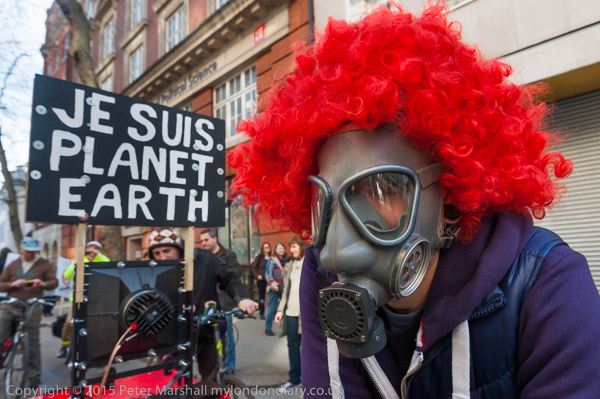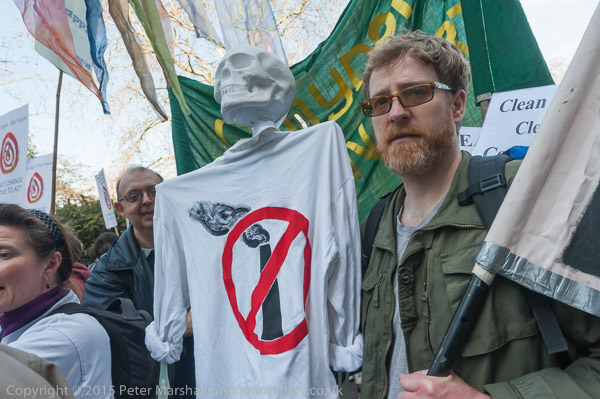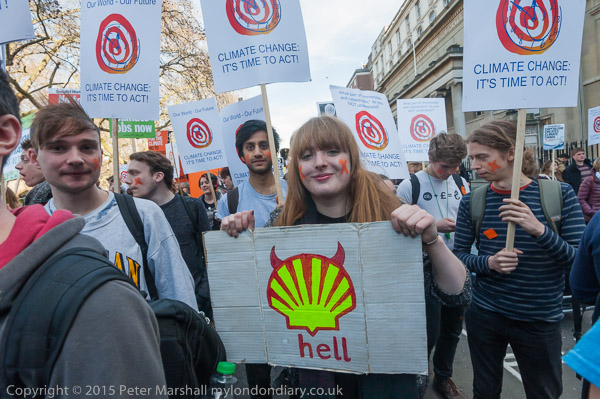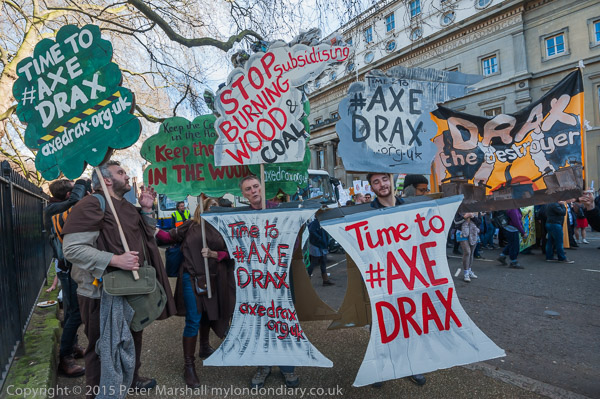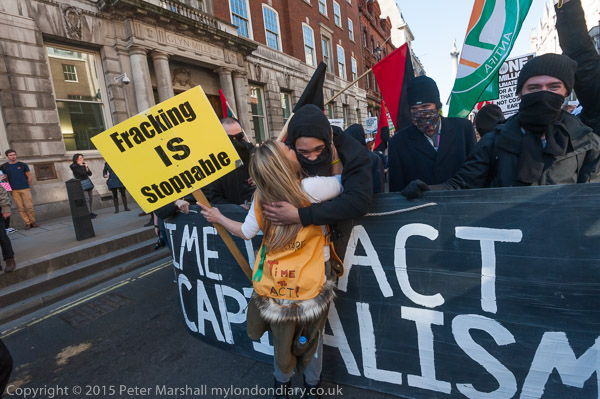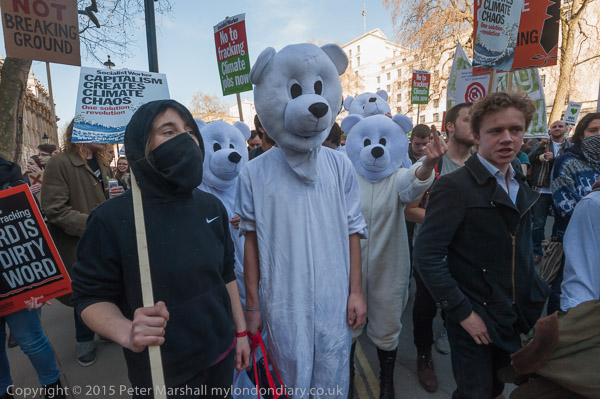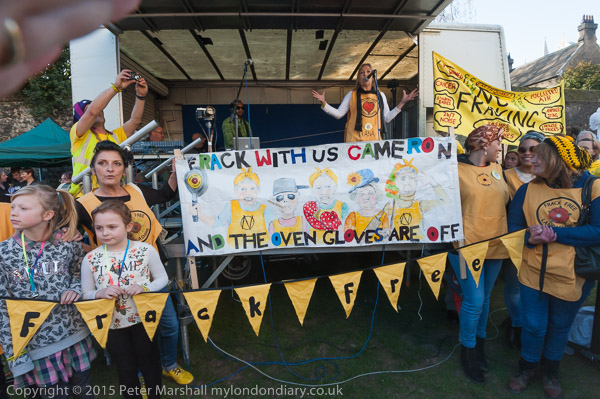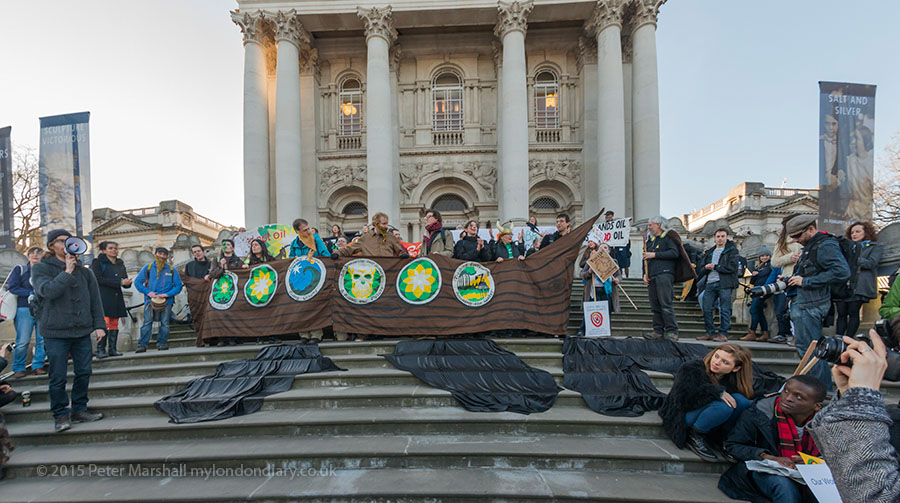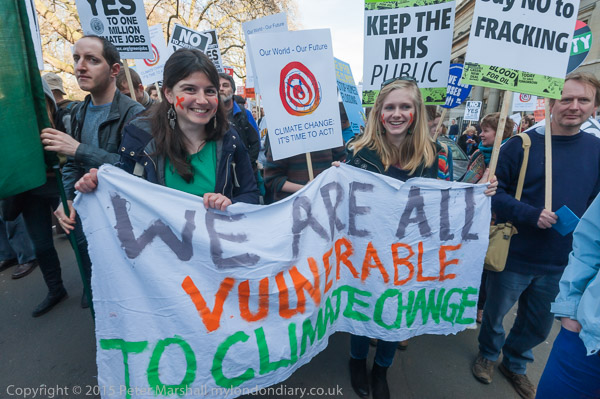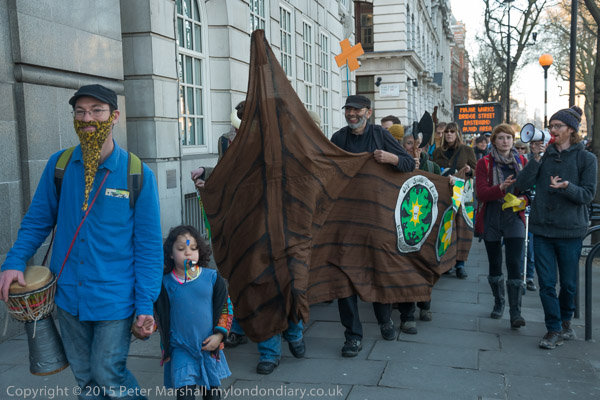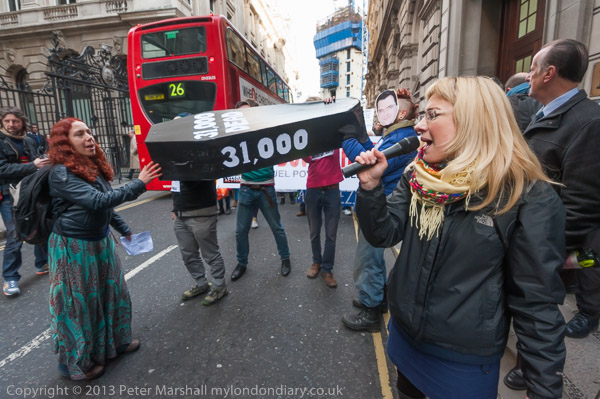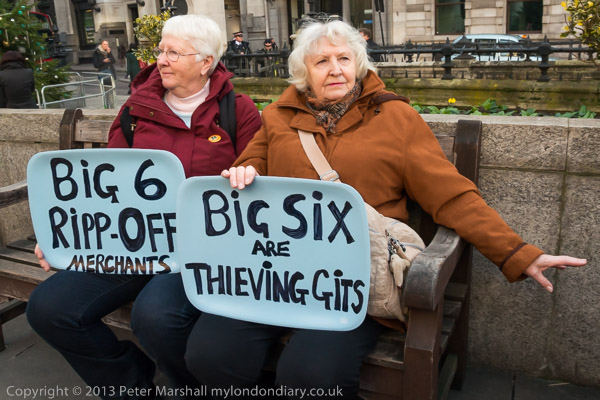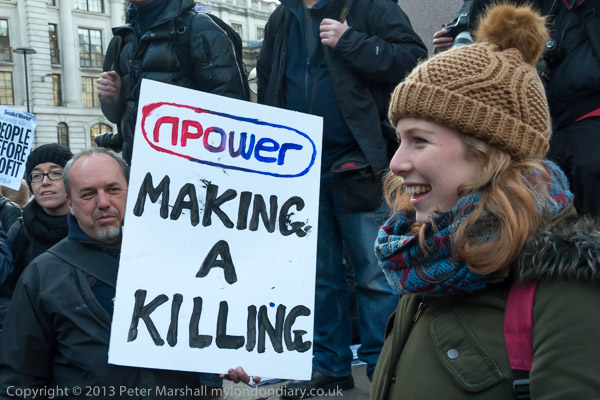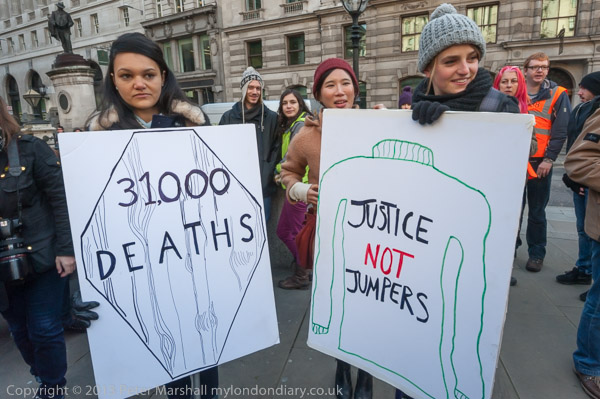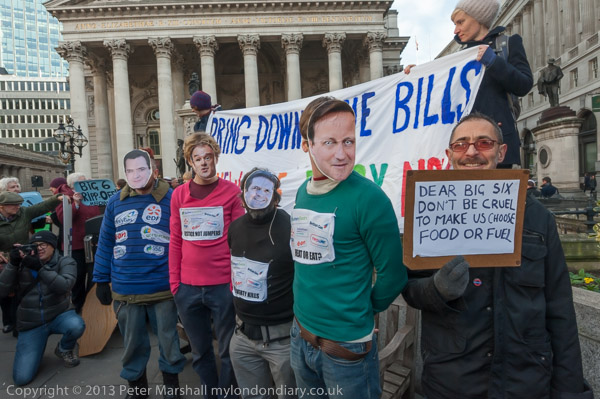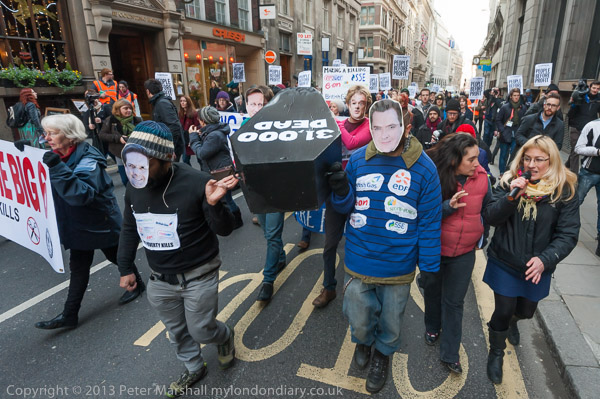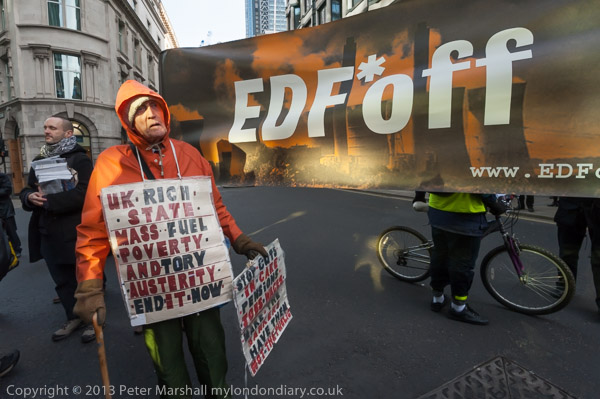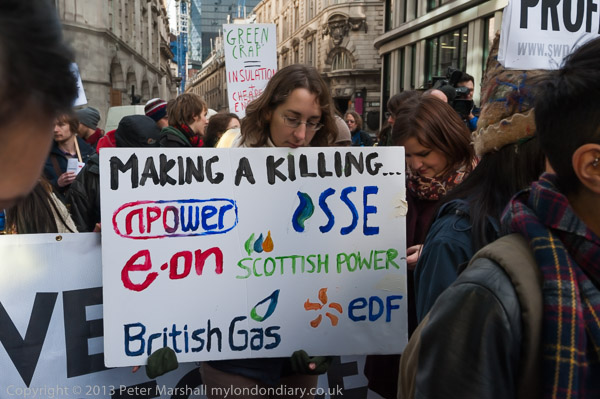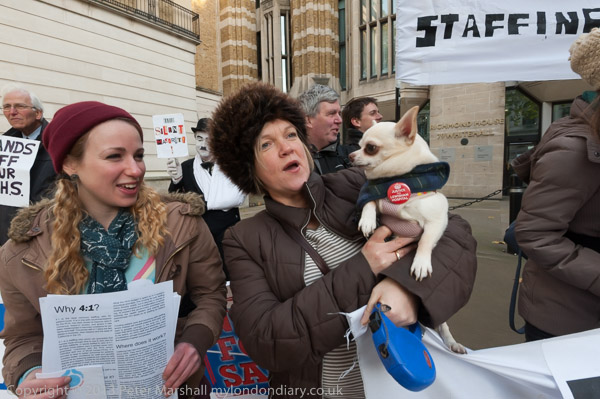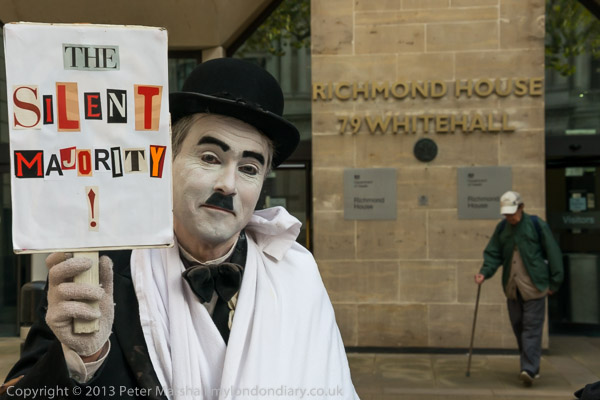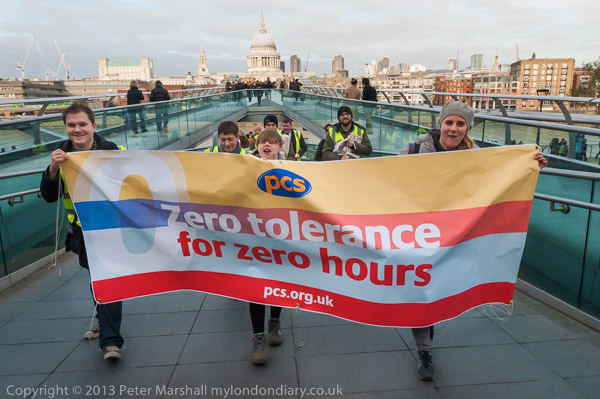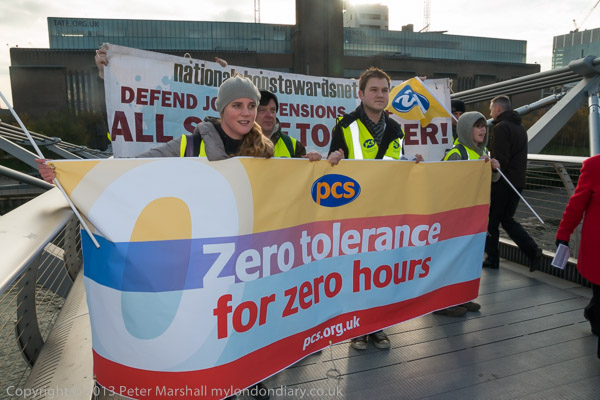Hardest Hit, Biofuels, Tibet and OccupyLSX: Saturday 22 October 2011 began for me with a protest at City Hall (still then in Southwark close to Tower Bridge) Next in Whitehall I photographed a protest against the pollution, environmental damage and human rights abuses of burning forests produce energy. Also on Whitehall I met Tibetans and supporters marching from the Chines Embassy to Downing Street demanding an end to China’s increasing repression in Tibet. Finally I went to St Paul’s Churchyard for a brief visit to Occupy London a week after their camp there had begun.
Hardest Hit Protest At City Hall
City Hall, More London

The Hardest Hit campaign, organised jointly by the Disability Benefits Consortium and the UK Disabled People’s Council were holding a rally outside City Hall as a part of protests in cities and towns across the country calling on the government to stop the cuts in benefits and services and changes in the assessment of disabilities which have hugely affected their lives.
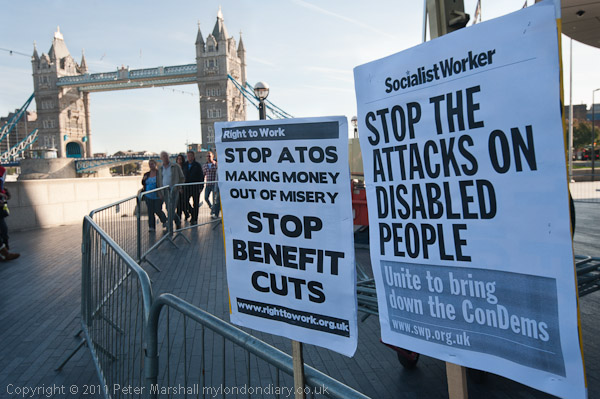
Of course the Mayor of London was not responsible for the cuts, and I assume this was just a convenient location he had made available for the protest. Of course many services provided by local government had been cut as a result of the government funding cuts. And as usual the government claimed to be concerned with the plight of the disabled and to be trying to help them while at the same time making cuts that really hurt them.
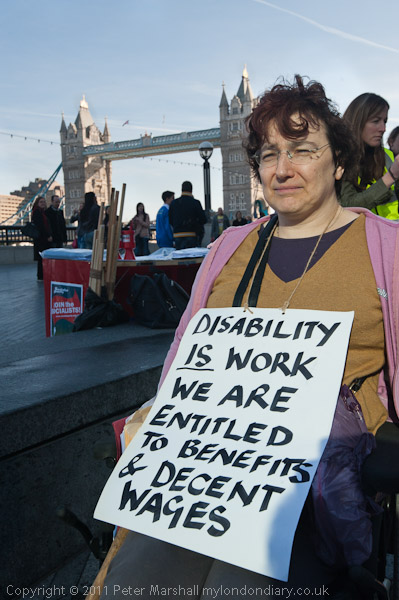

The protest took place in the Scoop, an outdoor sunken amphitheatre next to City Hall, part of the More London development, an events space which can seat around a thousand and it looked a little empty though there were many disabled protesters, some with carers and supporters.
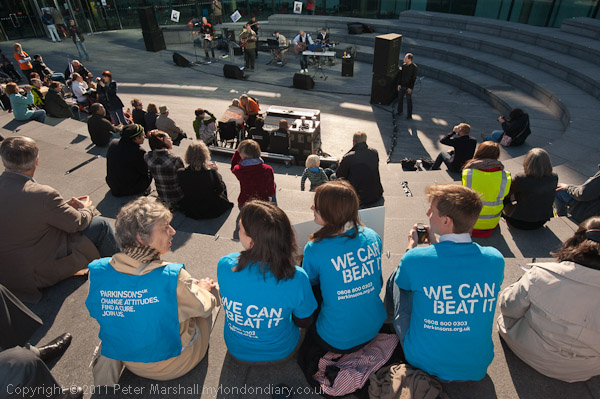
More at Hardest Hit Protest At City Hall.
Environmentalists Protest Against Biofuels
DECC, Whitehall Place
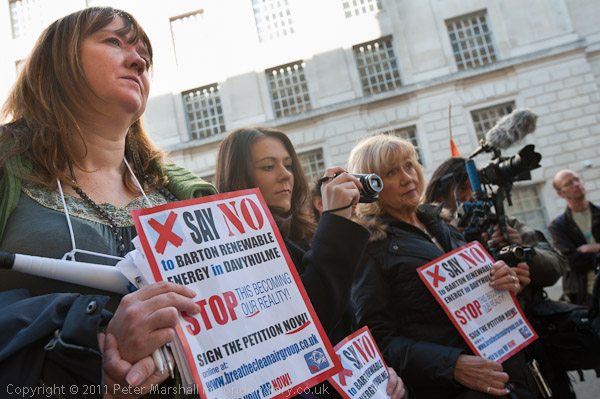
People had come from across the country to protest at continued government support for biofuel energy production despite it now being clear that this is contibuting to climate change, causes deforestation and the loss of valuable forest land, results in a loss of food production and threatens human rights in many areas.
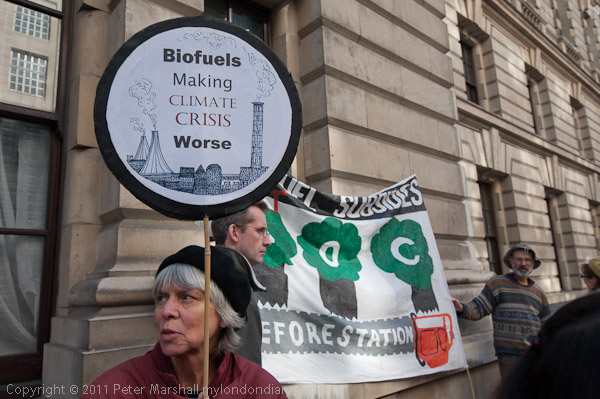
Biofuels were once seen as a green alternative which would help us reduce global warming, but it is now clear that are worse polluters than coal or oil. Despite this, they still receive huge payouts from funding meant to encourage renewable energy sources. The huge wood-burning plant at Drax in Yorkshire in 2024 received £869 million in public subsidies – over £2 million a day for polluting the planet.
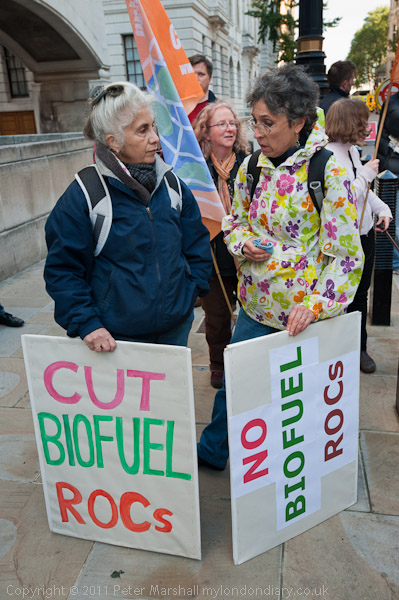
At last in February 2025 the UK government has announced a cut in the subsidies for Drax, and the winding down of using imported wood pellets for energy generation. But even when this comes into force in 2027 Drax will still be getting £1.2 million a day. Drax will cut its power production to around half its current level and further reductions are expected from then.
More at Environmentalists Protest Against Biofuels.
Tibetans March Against Chinese Repression
Whitehall

Several hundred Tibetans and supporters marched from the Chinese Embassy to Downing Street in a protest over China’s increasing repression in Tibet, where in March 2011 eight young monks and a nun had set themselves on fire in desperate protests. Five had died.
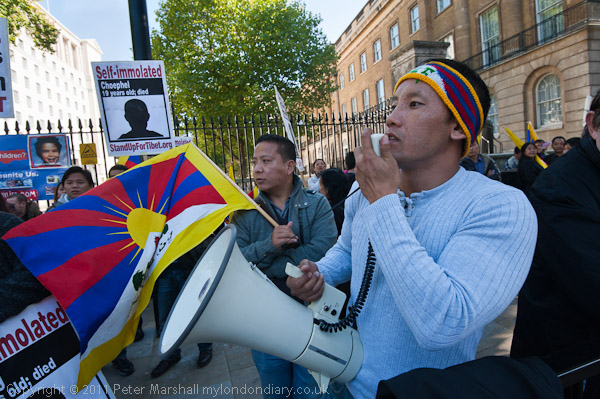
Protests around the world like this one aimed to get the international community to end their silence over the Chinese abuses of human and civil rights in Tibet. It was supported by the Tibet Society, Free Tibet, Students for a Free Tibet, Tibetan Youth UK and the Tibetan Community in Britain.
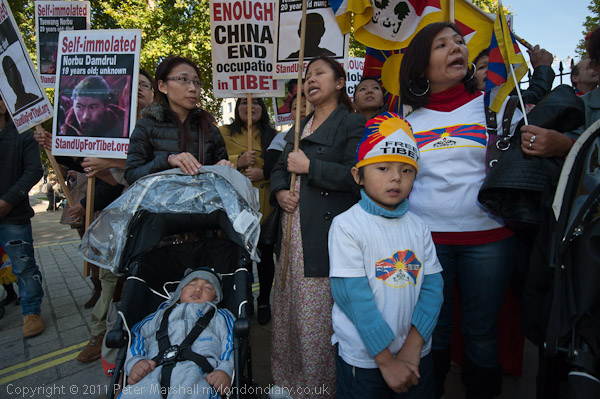
The held a rally opposite Downing Street and delivered a letter to the Prime Minister calling for the UK Government to take action.
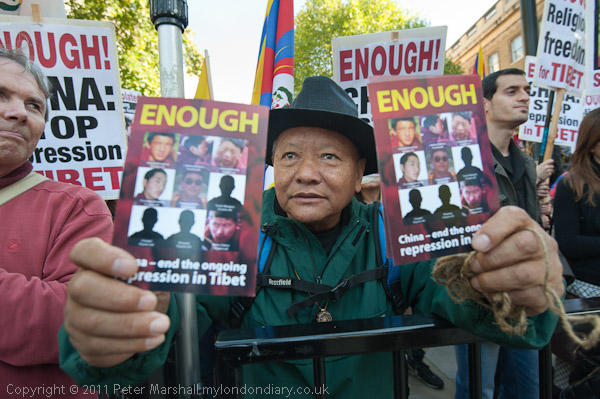
There was to be a world-wide day of action on Wednesday 2 Novemeber, the to call for action from international governments the day before world leaders meet in Nice, France for the G20 Summit.
More pictures Tibetans March Against Chinese Repression.
OccupyLSX Continues At St Paul’s
St Paul’s Cathedral
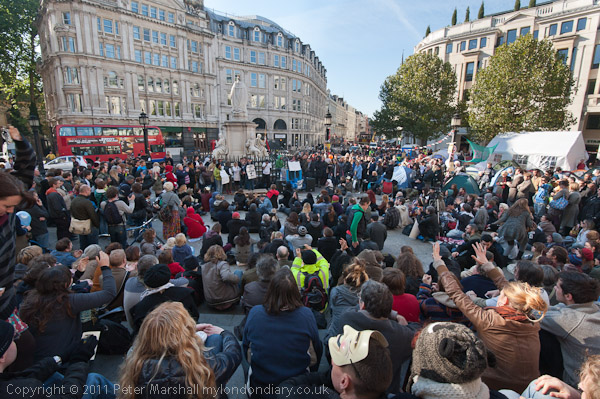
A week earlier on 15th October 2011 I had been at the protest when around 2000 Occupy protesters had tried to protest outside the Stock Exchange but were prevented by police. They had returned to the steps of St Paul’s and held a general meeting. Police kettled the protesters (and me) there, but I left when a group of them forced their way through the police line. Those that were still kettled decided to stay and occupy the area after police told them they should leave. A week later they were still there and I went back to see what was happening.
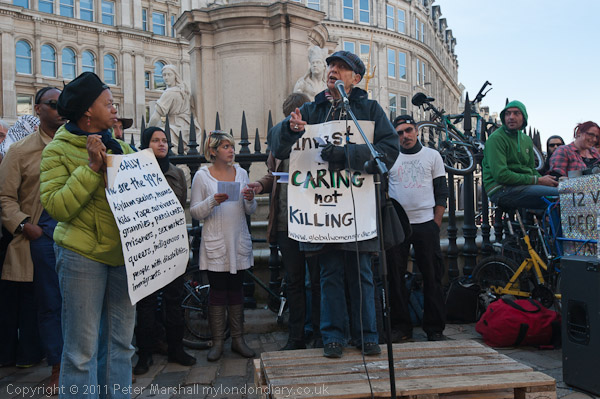
There was a full program of events for the day, and a general meeting was taking place with Selma James speaking.
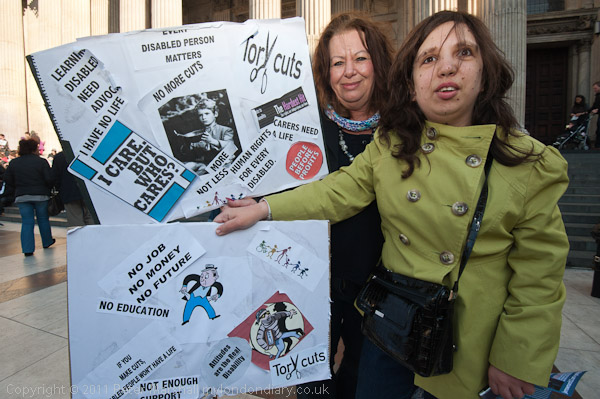
As I said “the organisation of the camp is impressive, although clearly there are some people around who don’t respect the camp’s ‘no alcohol’ rule. But like the previous camps in central London, the camp attracts a number of the rough sleepers and odd characters who normally wander the streets of our city. It’s a useful service for people who are normally neglected, but does bring some problems.”
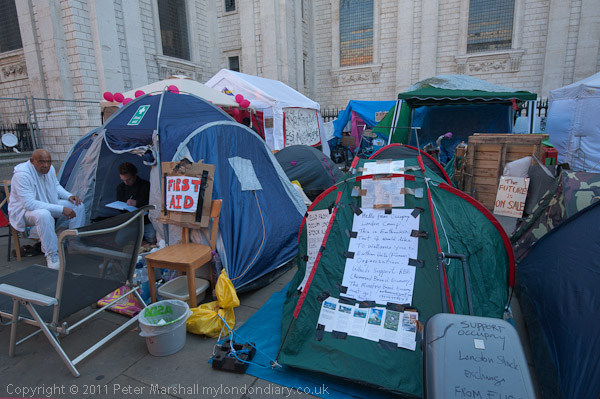
More at OccupyLSX Continues At St Paul’s.
Flickr – Facebook – My London Diary – Hull Photos – Lea Valley – Paris
London’s Industrial Heritage – London Photos
All photographs on this page are copyright © Peter Marshall.
Contact me to buy prints or licence to reproduce.
